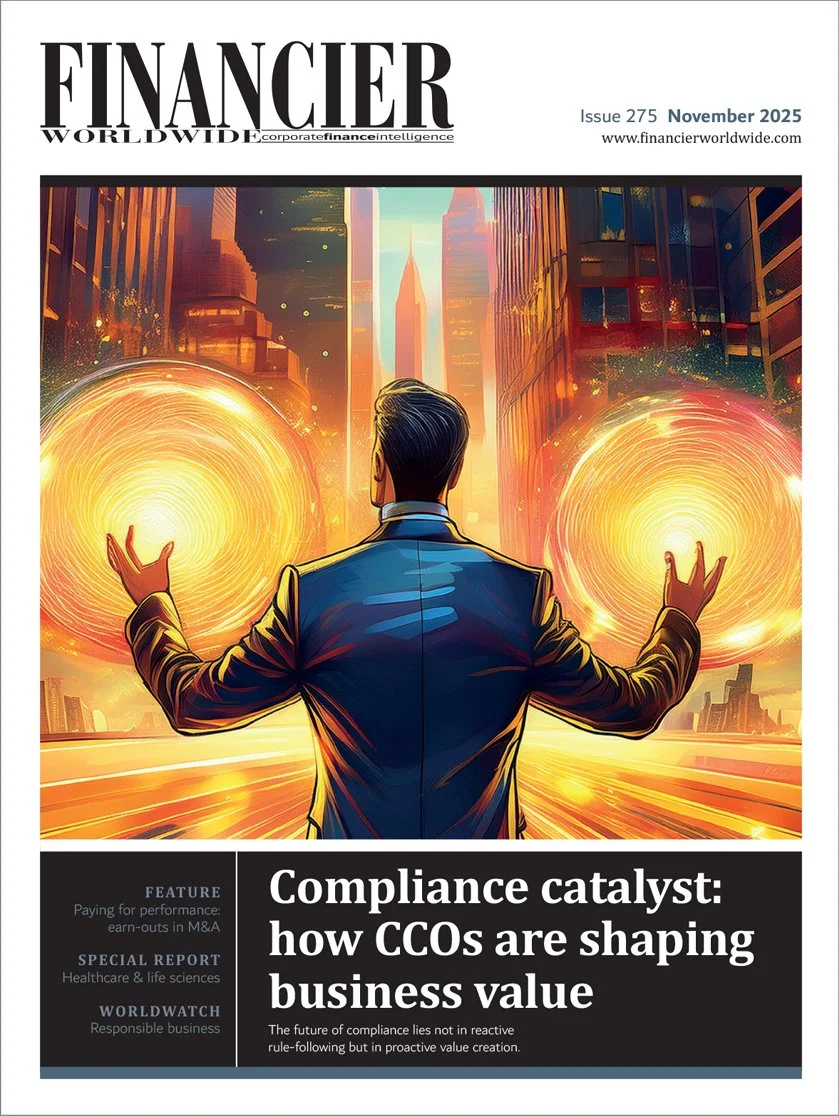Not easy being green: greenhushing on the rise
November 2025 | FEATURE | RISK MANAGEMENT
Financier Worldwide Magazine
Greenwashing has been a topic of considerable controversy in recent years. Firms found guilty of deliberately exaggerating or falsely advertising their environmental credentials have faced significant financial and reputational damage.
Depending on the jurisdiction and the severity of the claims involved, penalties for greenwashing have varied widely, ranging from thousands to billions of dollars. Volkswagen’s ‘dieselgate’ scandal resulted in a fine of $34.69bn. In recent years, jurisdictions such as the UK have introduced measures like the Digital Markets, Competition and Consumers Act, which allows for fines of up to 4 percent of annual revenue or 10 percent of global turnover. Individuals may also be fined up to £300,000 for breaches of the Green Claims Code.
Given the legal and reputational risks associated with greenwashing, companies have increasingly sought to improve their sustainability efforts and enhance their reporting on environmental, social and governance (ESG) issues.
Greenhushing explained: why companies are going quiet
Over the past 12 months, however, there has been a notable rise in ‘greenhushing’, driven by shifting political and regulatory priorities, particularly in the US.
Greenhushing refers to the practice of remaining silent about climate or ESG ambitions and initiatives to avoid scrutiny or negative attention. Also known as ‘strategic silence’, it differs from greenwashing in that companies deliberately downplay rather than exaggerate their environmental actions. Greenhushing is becoming more prevalent among both corporates and investors. Despite their differences, greenwashing and greenhushing share a common trait: both distort the truth, albeit from opposite ends of the spectrum.
The evolution of the US government’s approach to ESG since the commencement of the second Trump administration has placed companies in a difficult position. Shifting expectations from regulators and investors have led many firms to remain quiet about their climate goals. According to South Pole’s 2023/2024 Net Zero Report, the majority of companies in nine of the 14 major sectors surveyed are intentionally reducing their climate communications.
“Despite the rise of greenhushing, ESG remains a valuable tool for driving business value, building competitive advantage and promoting long-term resilience.”
This trend is unsurprising when viewed in the context of the Trump administration’s rollback of ESG and climate-related measures. In February 2025, the US Securities and Exchange Commission (SEC), under Mark Uyeda, acting chairman, began dismantling its legal defence of climate reporting rules introduced under the Biden administration. Mr Uyeda directed the SEC to request that the US Court of Appeals for the Eighth Circuit not schedule arguments in the consolidated case, citing concerns over the Commission’s statutory authority and the rule’s potential economic harm.
Regulatory retreat: how US policy is shaping ESG silence
Greenhushing is often seen as a protective strategy, allowing companies to avoid criticism while refining their sustainability initiatives. This approach can shield firms from premature scrutiny until their projects are more fully developed. However, it also carries risks, as silence around ESG issues can hinder stakeholder engagement and transparency – both essential to building trust and demonstrating corporate responsibility.
South Pole’s report found that 81 percent of companies surveyed globally recognised that communicating their net-zero goals under the Paris Agreement was beneficial to their bottom line. Yet 58 percent admitted to greenhushing. Heightened scrutiny from customers, clients and investors was among the top reasons cited for this behaviour.
Several major corporations have recently backtracked – at least publicly – on their ESG commitments. This trend is particularly evident in sectors central to the climate change conversation. The oil and gas industry, understandably at the heart of this debate, has begun shifting away from renewable energy and back toward fossil fuels.
In July 2025, Shell, Enbridge and Aker BP announced their withdrawal from the Science Based Targets initiative’s (SBTi) advisory group, which was tasked with defining net-zero standards for oil companies. Their departure followed the publication of a draft requirement that companies must cease developing new oil and gas infrastructure by 2027. The proposal was criticised by energy firms as unworkable and inflexible. The SBTi has since paused development of the new standard, citing limited resources.
Backpedalling on net zero: a new phase in climate strategy
Financial institutions have also retreated from net-zero commitments. HSBC, Goldman Sachs and Morgan Stanley have exited the United Nations-convened Net-Zero Banking Alliance, joining a wave of departures by major US and Canadian banks. These exits followed political pressure, particularly from Republican lawmakers, who warned of potential legal consequences for participation in climate-focused alliances.
Amid these political and financial pressures, it is unsurprising that organisations are increasingly reluctant to publicise their climate change and net-zero efforts.
Looking ahead, companies are likely to continue engaging in both greenwashing and greenhushing. For various reasons, these practices could remain attractive to organisations based on the fluctuating views of governments, consumers or other stakeholders. There may also be a rise in ‘greenshifting’, a tactic whereby responsibility for environmental sustainability is transferred from corporations to consumers or other stakeholders. This approach diverts attention from a company’s own environmental impact and places the burden of change on individuals or society.
Despite the rise of greenhushing, ESG remains a valuable tool for driving business value, building competitive advantage and promoting long-term resilience. Companies may simply choose not to talk about it.
© Financier Worldwide
BY
Richard Summerfield


